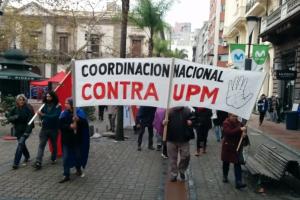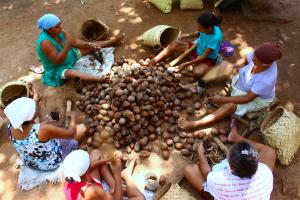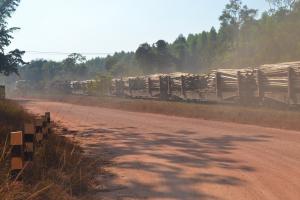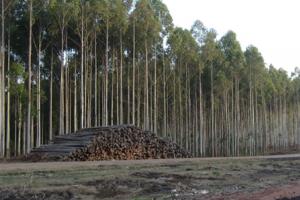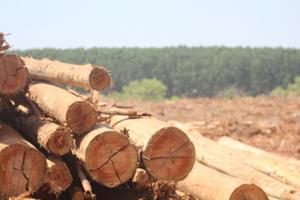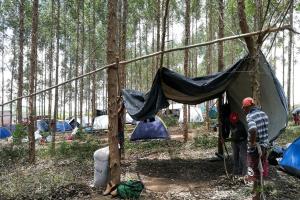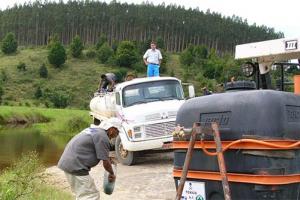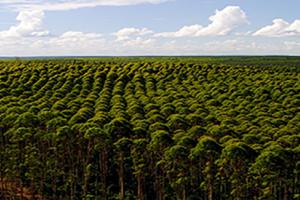Timber
Large-scale, intensively-managed and even-aged tree monocultures for timber production have been expanding onto communities’ fertile lands. They have destroyed forests and grasslands, especially in Latin America, Asia, and East and Southern Africa. The species used are exotic and fast-growing. They include varieties of eucalyptus, pine and teak trees.
Adhere to this letter to denounce the greenwashing of the Finnish multinational UPM, which is trying to install a new pulp mill and expand the monoculture tree plantations in Uruguay.
The construction of the Suzano Pulp and Paper mill—along with nearby highways, the constant transport of wood, and the massive influx of workers—has brought a lot of devastation to communities. This is the testimony of an activist who is fighting for the territory.
As a condition to install its second pulp mill, the company UPM demanded that the Uruguayan state build a new railroad from the site where UPM plans to locate its mill to the port. The government would cover the costs of these infrastructure projects at the service of UPM.
Certification schemes for tree plantations initially generated many expectations, promising a true transformation. Yet after all these years, we can definitely conclude that what the RSPO and FSC also have in common is that they will not meet those expectations.
For years, WRM has been warning many certified monoculture plantations in Brazil have been established on land for which titles were obtained fraudulently. This article discusses the case of two companies that operate in the Brazilian Amazon: Agropalma and Jari Florestal.
In 2017, the Finnish company UPM signed a contract with the Uruguayan government to establish a third mega pulp mill. The project is subject to exorbitant conditions imposed by the multinational.
On how pulp and paper companies are expanding in these territories while neutralizing community resistance in a process in which the population ends up economically and symbolically dependent on the companies.

